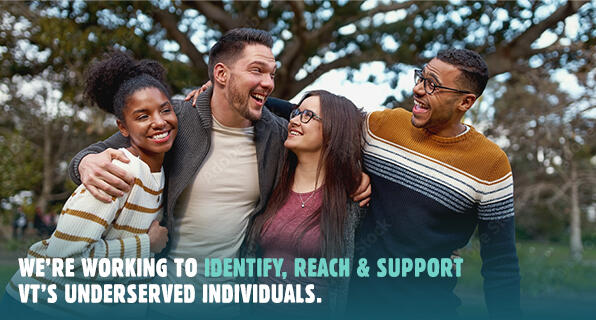
While Vermont has made great progress curbing the negative impacts of tobacco and nicotine use, we have a long way to go, especially among Vermont’s most underserved individuals or groups.
As national and state data show, certain populations have higher rates of tobacco use, which translates to poorer health outcomes and quality of life. More specifically, social determinants of health lead to some being marginalized. In turn, that creates more stress and inequities when it comes to jobs, housing and feelings of safety and security, which can lead to risk behaviors, such as tobacco use. To learn more, visit the State Health Improvement Plan, which includes action plans for reducing tobacco use among the populations listed below.
